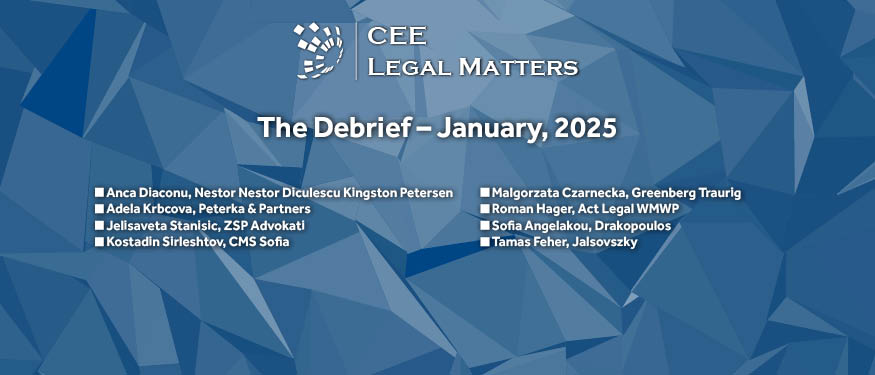The DORA regulation (Regulation (EU) 2022/2554 of the European Parliament and of the Council of 14 December 2022 on digital operational resilience for the financial sector) is an essential piece of European legislation aiming to bolster cybersecurity within the EU.
Turkiye: Non-Performing Loans – Regulatory Landscape and Industry Impact
Turkiye has long had one of the lowest non-performing loan (NPL) rates in Europe, but recent years have seen some ups and downs. Between 2017 and 2020, the rate fluctuated between 3.25% and 3.46%. During the pandemic, the rate dropped significantly as borrowers benefited from extended loan payment schedules. Thereafter, the rate rose briefly before falling below the European Union average of 2.27% in 2023. Since the beginning of 2024, however, rising interest rates have pushed the NPL rate back up, to 1.71%. Experts expect the rate to rise to 2.5% by the end of the year, above the EU average and a challenge for borrowers and lenders.
Austria: Digital Operational Resilience Act (DORA) – Opportunities and Challenges
The Digital Operational Resilience Act (DORA) is a central component of the EU’s Digital Finance Package. The aim is to enhance information and communications technology (ICT) security and digital operational resilience in the financial sector. Financial institutions and ICT service providers have until January 17, 2025, to fully implement the requirements.
Lithuania: The Launch of the Markets in Crypto-Assets Regulation
The Markets in Crypto-Assets Regulation (MiCAR) has just been launched, and this brings big changes for crypto-asset markets in the European Union. MiCAR applies to both crypto-asset service providers (CASPs) and crypto-asset issuers, but it focuses mainly on CASPs due to the higher risks involved with their activities. Each EU member state has the option to set its own transition periods for implementing the CASP regulations.
Latvia: Third-Party Assets Held by a Credit Institution in Cases of Insolvency
A credit institution typically possesses funds belonging to depositors. However, there may be situations when the institution also holds property that belongs to third parties. This article aims to examine the concept of third-party property in the case of a credit institution’s insolvency.
Ukraine: The Changing Landscape of Cross-Border Finance
The Russian aggression against Ukraine has reshaped the landscape of cross-border finance in the country. While the initial shockwaves of the conflict saw financing dry up almost entirely, with most support directed toward the government, a gradual but significant shift has occurred.
Looking In: Anders Fast of Baker McKenzie
In our Looking In series, we talk to Partners from outside CEE who are keeping an eye on the region (and often pop up in our deal ticker) to learn how they perceive CEE markets and their evolution. For this issue, we sat down with Baker McKenzie Stockholm Partner and a member of the firm’s Global Executive Committee Anders Fast.
Ukraine’s Financial Market Resilience in 2024
In 2024, the financial market in Ukraine has remained resilient and stable even though the Russian full-scale military aggression against Ukraine approaches its third anniversary. This has been possible due to the continuing financial support coming from Ukraine’s allies and international donors. Notably, G7 leaders have recently announced a USD 50 billion lending package for Ukraine to be repaid with revenues from Russian frozen assets.
Agrarian Notes: A New Digital Tool for Attracting Financing in the Agricultural Sector
Simplifying access to financing for farmers can increase the productivity and profitability of the industry, allowing producers and processors of agricultural products to invest in the latest technologies and innovative solutions, enhancing efficiency.
Upcoming PPP Overhaul To Follow Industrial Parks Legal Framework
The past year has demonstrated that an ongoing conflict is not an obstacle to development and investment. Despite infrastructure being targeted by shelling, Ukraine’s real GDP grew by 4% in the first nine months of 2024, with expectations that this figure will reach 4.3-4.6% in the coming years. To maintain this growth, Ukraine must actively engage private investments to rebuild its damaged infrastructure and assets.
Ukrainian M&A Market Showing Signs of Recovery
As Ukraine continues to resist the Russian Federation’s invasion, its M&A market in 2024 demonstrates both resilience and adaptability. While the early months of the full-scale war in 2022 likely represented an all-time low for dealmaking, today’s landscape appears far more dynamic. Although reaching and surpassing pre-war levels of activity will take time, the market is showing clear signs of recovery.
Real Estate in Montenegro – Balancing Between Public Revenue Growth and Investment Appeal
Montenegro’s real estate sector is undergoing significant transformations due to recent legislative changes and proposed reforms, particularly in the tourism sector. These novelties will impact investors, developers, and most certainly the entire economy of Montenegro, but it remains debatable if the impact will be positive.
New Year, New Tax Adjustments: Montenegro’s 2025 Update
From September 2024, the Montenegrin Parliament passed a series of tax legislative amendments aligned with the country’s Fiscal Strategy for 2024-2027. Set to take effect on January 1, 2025, these reforms aim to increase budget revenues to offset recent reductions in labor taxes and improve the business environment. The changes affect the Corporate Income Tax Law, Personal Income Tax Law, VAT Law, Law on the Write-off of Interest on Outstanding Tax Liabilities, and Excise Law, focusing on modernizing the tax system and stimulating investments primarily in the agricultural sector.
The Debrief: January, 2025
In The Debrief, our Practice Leaders across CEE share updates on recent and upcoming legislation, consider the impact of recent court decisions, showcase landmark projects, and keep our readers apprised of the latest developments impacting their respective practice areas.




























